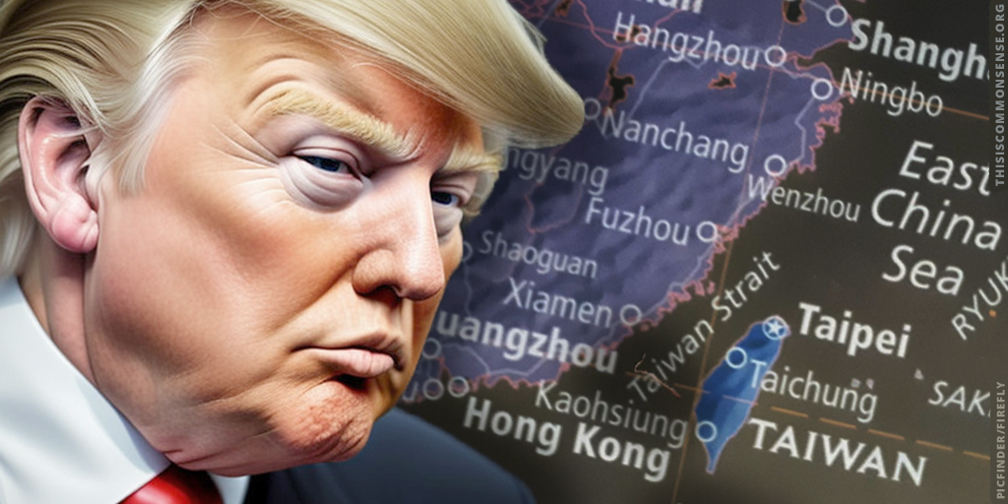“Would you defend Taiwan against China?” Bloomberg News recently inquired of former President Donald Trump.
After mentioning his great “respect” for the Taiwanese — though complaining that the nation “did take about 100% of our chip business” — the Republican nominee responded: “I think Taiwan should pay us for defense. You know, we’re no different than an insurance company. Taiwan doesn’t give us anything. Taiwan is 9,500 miles away. It’s 68 miles away from China.
Indeed. But the Nazis and Imperial Japan once flaunted the same geographicadvantage. And note that the Japanese island of Yonaguni is closest to the big island of Taiwan.
Taiwan is much freer than China. And, accordingly, richer per capita … because the Taiwanese do give us (and the world) something: computer chip manufacturing, especially high-end chips. An important commodity. The Chinese government encourages and facilitates the stealing of our intellectual property; Taiwan companies just kicked our butts in the marketplace.
“Cool to the idea of the U.S. protecting Taiwan,” was how Nancy Cook, Bloomberg’s senior national political correspondent, not unreasonably characterized Mr. Trump’s comments. Still, Trump may have been simply negotiating up Taiwan’s military commitment, much as he did to NATO countries in his first term.
Of course, “Taiwan has been paying for its own defense,” says the State Department.
Taiwan has “consistently been one of the biggest buyers of U.S. weapons,” argues Michael McCaul (R‑Texas), acknowledging that Trump “is right that U.S. allies should” pony up “in their own defense.”
Lastly, is the United States like an “insurance company”?
Well, it’s certainly a breakable world. But the idea is to prevent more breakage, not pay out after a disaster.
This is Common Sense. I’m Paul Jacob.
Illustration created with PicFinder and Firefly
—
See all recent commentary
(simplified and organized)

3 replies on “Breaking Taiwan?”
I want to ask whether and why (or why not) the people of Caribou, Maine, should defend the people of Chula Vista, California. I have my own beliefs about these questions, but I certainly recognize that those beliefs might be wrong.
Implicit in the ease or difficulty of delivering a solid answer to those questions is the ease and difficulty of answering those questions is the ease or difficulty in solidly answering whether and why (or why not) Americans should defend the Taiwanese.
Until I can answer well, I won’t be dismissive of people who answer differently, so long as they don’t argue fallaciously.
Trump wants to bring the manufacturing of those technologies back to America. Why? National security for one. We are 100% dependent on Taiwan for those critical technologies. China doesn’t have to attack Taiwan. Just conduct a naval blockade. Do you believe any Democratic POTUS would engage our Navy to break that blockade? Bringing back chip manufacturing will create jobs that have been bled out of the American technology industry. What’s wrong with safe guarding our national security and creating more jobs?
Trade allows comparative advantage to be used to increase the wealth of participants. When trade would otherwise occur because of comparative advantage, instead adopting self-reliance means forgoing wealth. In principle, a nation trying to go it alone would be like a person trying to be individually self-sufficient, rather than trading with the people around him or her.
With protection of the domestic semiconductor industry, you’d see jobs created in that industry, but lost in every other sector, because the increased cost of semiconductors would mean that resources that could otherwise have gone to other things would now have to go to semiconductor production.
Had the US always imposed electronic self-reliance upon America, we’d have had to get-by with less electronics. Much of what you now imagine being kept safe would never have come into existence in the first place.
And, while a personal choice of true self-reliance is one thing, preventing other people from engaging in trade is quite another.